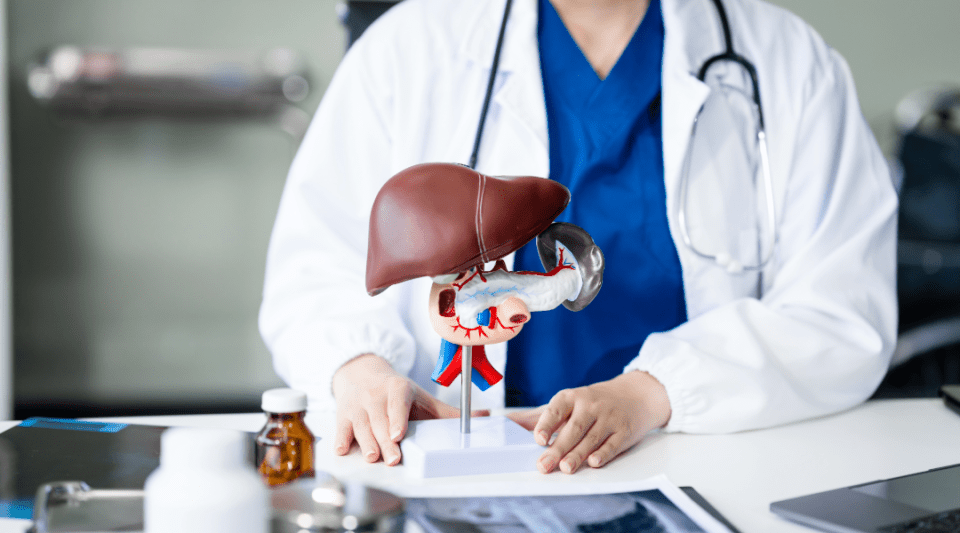Metabolic fatty liver disease is spreading worryingly and, in most cases, is completely asymptomatic. It affects between 25% and 30% of the population in developed countries, and this figure shoots up to 60% for patients with diabetes and up to 80% for people with obesity. This increase raises important questions about what is happening with this disease and what measures can be taken to protect against it.
Metabolic fatty liver is one of the main causes of chronic liver diseases and is characterised by the accumulation of fat in this vital organ. Often, this condition is discovered unexpectedly during a routine ultrasound or when abnormal levels of transaminases are detected in the blood. The subgroup of the population affected most by this disease are people with type 2 diabetes, obesity, high cholesterol or high blood pressure.
The importance of early diagnosis
In addition to metabolic factors, lifestyle habits and genetics also play a part in this disease. Although it may seem just a simple accumulation of fat, fatty liver can slowly get worse over 20 or 30 years, evolving silently through different stages: from steatosis to fibrosis and, in more severe cases, to cirrhosis of the liver.
Fatty liver not only affects this specific organ, it also significantly increases the risk of suffering from cardiovascular diseases and, if not treated in time, can lead to much more serious problems such as liver cancer. Diagnosing the disease in time and understanding what stage it is at are key in determining the most appropriate treatment and follow-up.
Do you want more information and tips to lead a healthy life? Consult here
Changing your lifestyle to protect your liver
There is currently no curative pharmacological treatment for this disease; however, the good news is that the disease can be controlled and even partially reversed with simple but effective lifestyle changes. Moderate weight loss, of 5% to 10%, can make a big difference. Following a healthy diet, such as the Mediterranean diet, rich in fresh, healthy foods; avoiding processed foods and sugary drinks; as well as incorporating regular physical exercise into your daily routine are all fundamental for reversing the disease. Alcohol consumption, even in small quantities, can accelerate the progression of the disease, so it is recommended to avoid it.
It is also crucial to keep various cardiovascular risk factors -such as diabetes, cholesterol intake and high blood pressure- under control, as these contribute both to the progression of the disease and mortality.
Although there is currently no specifically approved drug treatment for fatty liver, research teams are working intensively on this. There are numerous clinical trials underway with promising drugs, which may help reduce the inflammation and fibrosis associated with this condition. It is likely that in the coming years new treatment options will become available that could transform the way this disease is treated.
Information documented by:
Dr Anna Soria and Dr Isabel Graupera, Hepatology Department at Hospital Clínic, Barcelona.






